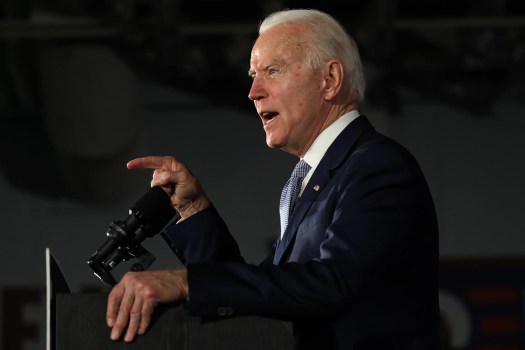If you were thinking Trumpism was a passing phenomenon, the work of a nitwit showman, then you thought wrong. The strongest indictment came Thursday in a Washington Post opinion piece, “Our constitutional crisis is already here.” I urge you to read the full piece. For those without a subscription I’ll give some excerpts below.
Author Robert Kagan is one of those pundits who has walked both sides of the street. He’s been both a prominent neoconservative and a vigorous opponent of Trump. He was a longtime advocate for global intervention, yet in 2016 he endorsed Hillary Clinton and loudly called Trump a fascist. Here he has outlined a fearsome yet possible scenario, beginning this way:
The United States is heading into its greatest political and constitutional crisis since the Civil War, with a reasonable chance over the next three to four years of incidents of mass violence, a breakdown of federal authority, and the division of the country into warring red and blue enclaves. The warning signs may be obscured by the distractions of politics, the pandemic, the economy and global crises, and by wishful thinking and denial.
Trump will no doubt be the candidate in 2024, says Kagan, and the majority of Republicans will try to “ensure his victory by whatever means necessary.” They will do this by controlling state and local officials who certify elections. The stage is “being set for chaos” and partisan warfare.
The political and intellectual establishments in both parties have been underestimating Trump since he emerged on the scene in 2015. They underestimated the extent of his popularity and the strength of his hold on his followers; they underestimated his ability to take control of the Republican Party; and then they underestimated how far he was willing to go to retain power. The fact that he failed to overturn the 2020 election has reassured many that the American system remains secure, though it easily could have gone the other way—if Biden had not been safely ahead in all four states where the vote was close; if Trump had been more competent and more in control of the decision-makers in his administration, Congress and the states. As it was, Trump came close to bringing off a coup earlier this year. All that prevented it was a handful of state officials with notable courage and integrity, and the reluctance of two attorneys general and a vice president to obey orders they deemed inappropriate.
The framers of the constitution never imagined such a breakdown of the three branches of government or the rise of such power in a national political party.
Suspicion of and hostility toward the federal government; racial hatred and fear; a concern that modern, secular society undermines religion and traditional morality; economic anxiety in an age of rapid technological change; class tensions, with subtle condescension on one side and resentment on the other; distrust of the broader world, especially Europe, and its insidious influence in subverting American freedom—such views and attitudes have been part of the fabric of U.S. politics since the anti-Federalists, the Whiskey Rebellion and Thomas Jefferson.
What makes the Trump movement historically unique is not its passions and paranoias. It is the fact that for millions of Americans, Trump himself is the response to their fears and resentments. This is a stronger bond between leader and followers than anything seen before in U.S. political movements. . . . His charismatic leadership has given millions of Americans a feeling of purpose and empowerment, a new sense of identity. . . .
For Trump supporters, the “error” is that Trump was cheated out of reelection by what he has told them is an oppressive, communist, Democrat regime. While the defeat of a sitting president normally leads to a struggle to claim the party’s mantle, so far no Republican has been able to challenge Trump’s grip on Republican voters: not Sen. Josh Hawley, not Sen. Tom Cotton, not Tucker Carlson, not Gov. Ron DeSantis. It is still all about Trump.
. . . Republican politicians marvel at how he has “tapped into” a hitherto unknown swath of the voting public. But what he has tapped into is what the founders most feared when they established the democratic republic: the popular passions unleashed, the “mobocracy.” Conservatives have been warning for decades about government suffocating liberty. But here is the other threat to liberty that Alexis de Tocqueville and the ancient philosophers warned about: that the people in a democracy, excited, angry and unconstrained, might run roughshod over even the institutions created to preserve their freedoms.
. . . To understand how such movements take over a democracy, one only has to watch the Republican Party today. These movements play on all the fears, vanities, ambitions and insecurities that make up the human psyche.
. . . This is how fascism comes to America, not with jackboots and salutes (although there have been salutes, and a whiff of violence) but with a television huckster, a phony billionaire, a textbook egomaniac “tapping into” popular resentments and insecurities, and with an entire national political party—out of ambition or blind party loyalty, or simply out of fear—falling into line behind him.
More on this issue: “What If 2020 Was Just a Rehearsal?”










